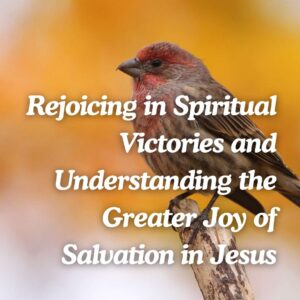 In Luke 10:25-37, Jesus tells the Parable of the Good Samaritan, a powerful story that redefines what it means to be a neighbor and calls us to a radical love that transcends societal boundaries. This passage challenges us to examine our own hearts and actions, urging us to embody compassion and mercy in our daily lives.
In Luke 10:25-37, Jesus tells the Parable of the Good Samaritan, a powerful story that redefines what it means to be a neighbor and calls us to a radical love that transcends societal boundaries. This passage challenges us to examine our own hearts and actions, urging us to embody compassion and mercy in our daily lives.
Scripture Reading:
“Behold, a certain lawyer stood up and tested him, saying, ‘Teacher, what shall I do to inherit eternal life?’ He said to him, ‘What is written in the law? How do you read it?’ He answered, ‘You shall love the Lord your God with all your heart, with all your soul, with all your strength, and with all your mind; and your neighbour as yourself.’ He said to him, ‘You have answered correctly. Do this, and you will live.’ But he, desiring to justify himself, said to Jesus, ‘Who is my neighbour?’ Jesus answered, ‘A certain man was going down from Jerusalem to Jericho, and he fell among robbers, who both stripped him and beat him, and departed, leaving him half dead. By coincidence a certain priest was going down that way. When he saw him, he passed by on the other side. In the same way a Levite also, when he came to the place and saw him, passed by on the other side. But a certain Samaritan, as he traveled, came where he was. When he saw him, he was moved with compassion, came to him, and bound up his wounds, pouring on oil and wine. He set him on his own animal, brought him to an inn, and took care of him. On the next day, when he departed, he took out two denarii and gave them to the host, and said to him, ‘Take care of him. Whatever you spend beyond that, I will repay you when I return.’ Now which of these three do you think seemed to be a neighbour to him who fell among the robbers?’ He said, ‘He who showed mercy on him.’ Then Jesus said to him, ‘Go and do likewise.’” — Luke 10:25-37 (WEBBE)
Reflection: The Parable of the Good Samaritan is a profound lesson in love and compassion. It begins with a lawyer’s question about eternal life, which Jesus answers by affirming the central commandment of loving God and loving one’s neighbor. However, the lawyer, seeking to justify himself, asks a clarifying question: “Who is my neighbor?”
Jesus responds with a story that turns conventional expectations on their head. In the parable, a man traveling from Jerusalem to Jericho is attacked by robbers and left half dead. Both a priest and a Levite, who would be expected to show compassion, pass by on the other side, avoiding the wounded man. The hero of the story is a Samaritan, a member of a group despised by Jews. This Samaritan, moved by compassion, attends to the man’s wounds, provides for his immediate needs, and ensures his continued care.
This story teaches us several crucial lessons. First, love and compassion are not limited by social, ethnic, or religious boundaries. The Samaritan’s actions defy the prejudices of his time and reveal a heart genuinely moved by another’s suffering. Second, true neighborliness is demonstrated by active care and sacrifice, not just by feeling sympathy from a distance.
Jesus’ instruction, “Go and do likewise,” challenges us to embody this radical love in our own lives. It invites us to extend compassion beyond our comfort zones, to serve those who are marginalized, and to act with mercy in our everyday interactions.
Prayer: Lord Jesus, thank You for the Parable of the Good Samaritan, which teaches us the depth of Your love and the call to be true neighbors. Help us to see others through Your eyes, to respond with compassion and action, and to extend grace to those in need. May we break down barriers of prejudice and be vessels of Your mercy. Empower us to live out Your commandment to love our neighbors as ourselves. In Your name, Amen.
Action Plan:
- Identify Opportunities for Compassion: This week, look for ways to show kindness and support to someone in need, especially those who may be overlooked or marginalized.
- Challenge Prejudices: Reflect on any biases or prejudices you might have and pray for God’s help in overcoming them. Seek to build relationships with those from different backgrounds or communities.
- Act with Intentionality: Plan a specific act of service or generosity, such as volunteering, providing assistance, or simply offering a listening ear to someone who is struggling.
Thoughts for Contemplation:
- How do I define my “neighbor,” and how can I expand that definition to include those who are different from me?
- What are some barriers that prevent me from showing compassion, and how can I overcome them?
- In what ways can I actively practice the love and mercy exemplified by the Good Samaritan in my daily life?
As you ponder these questions, allow Jesus’ call to love and serve others to inspire and guide your actions, transforming your approach to relationships and service.



